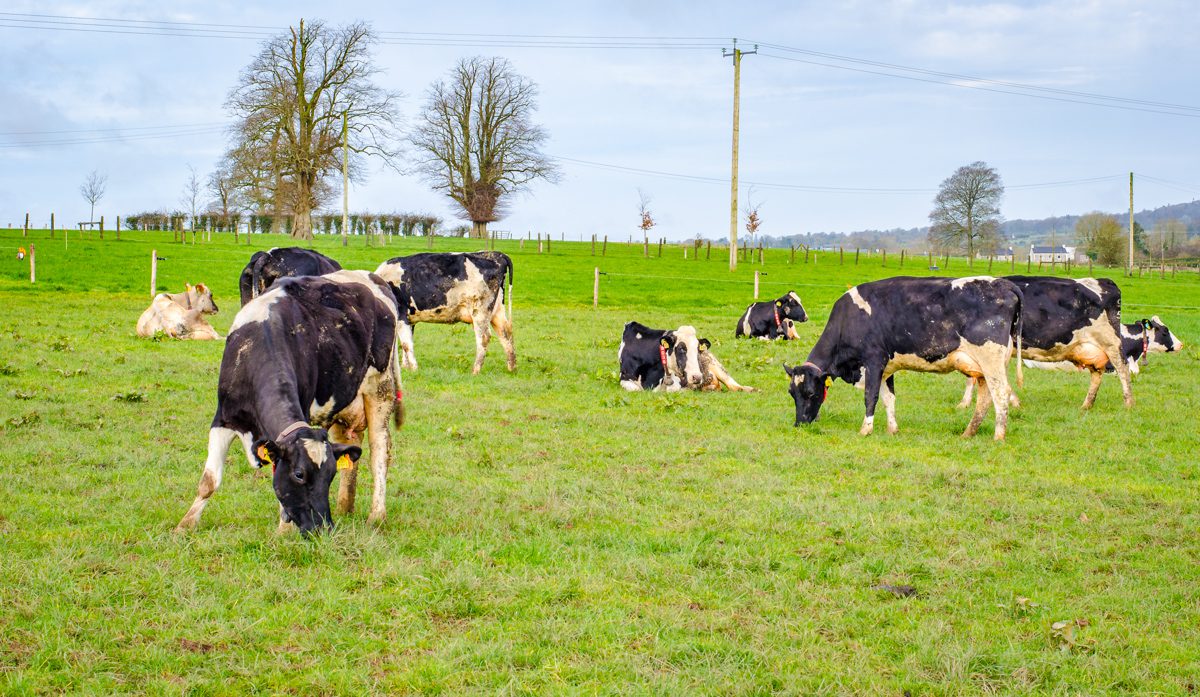A software glitch detected by the Irish Cattle Breeding Federation (ICBF) momentarily “rocked farmer confidence” in genetic evaluations, Sean Coughlan, CEO of the ICBF, has stated.
However, in retrospect, Coughlan says the widely-publicised technical error identified in dairy genomic evaluations in spring 2017, has been “very good” for the organisation as it has resulted in the establishment of a “much more robust system“.
“As part of an upgrade to the software there was an error that got introduced. Technically speaking it was introducing zeros into a place where zeros shouldn’t be going and testing didn’t pick it up.
It was just one of those things that can happen when dealing with software. It was all the genomic evaluations for the dairy bulls.
Action was immediately taken by the ICBF to do an extra evaluation run. Although the situation created a lot of operational challenges to the AI companies; the ICBF said it ultimately culminated in last year being the “best ever” AI season.
“We’ve ended up this season with the resultant calves that were born from the insemination last spring and there is further genetic gain again.
So actually taking on the issue at that point and putting our hands up saying ‘we have a problem here, we need to deal with it’, was absolutely the right thing to do.
Outlining the breeding programme’s progress, the ICBF stated that the trends in Economic Breeding Index (EBI) continue to advance on both the milk and fertility indexes – making a significant contribution to profitability at farm level over the years.
Touching on the most recent updates to the breeding index, the ICBF highlighted that the average EBI of dairy-bred females increased by €21 in 2017.
‘Bulls canned’
However, Cromie accepts that some confidence was knocked from a farmer perspective.
“Did it affect the dairy genomic evaluations in general? Of course it did. But it actually affected just spurious groups of bulls which were not related to the training population.
“If we hadn’t taken the decision to absolutely correct it, it would have resulted in those bulls being used more heavily.
What it was doing was inflating up proofs and making these bulls look really, really good. That’s how we caught there was an issue – clearly with these bulls their deviation from expectation was higher than expected.
“When we got to ‘dig, dig, dig’ we got right to the bottom which was a software issue,” he said.
Although it was the eve of the breeding season, with the bulls in question already collected and on farms, a decision was made to call an emergency board meeting.
“We decided that we couldn’t go with these bulls; we are going to do a full re-run and get another set of evaluations because of the consequences,” said Cromie.
Certainly there were bulls then that were canned.
“Going out early, ahead of the breeding season, meant that farmer confidence would be retained before semen got into cows,” he said.
The right decision
Over the last 12 months, there has been a continued growth in cattle breeding services across the country. For example, the HerdPlus service grew by 12% in 2017, up to 26,200 herds.
In addition AI business grew by 7.5% despite the operational challenges faced by AI partners as a result of the error last spring.
Also Read: ICBF generates ‘small’ financial surplus for 2017“If we had allowed semen to go into cows, or if we had identified the problem but said ‘it’s too late, let the semen go into the cows’, the average EBI gain of €21 would certainly have been halved.
Then the ICBF would have been very much in the eye of the storm.
Doran, the ICBF chairman, said the real strength of the organisation was its ability to carry out a swift and accurate re-run. He praised the skillset of staff to carry out such a huge task under pressure.
“There was no doubt that people had questions in their own mind. But, I think when people sat back and looked at their own farms and looked at the genetic gain they had made year-on-year and that their cows are more fertile, with a much higher six-week calving rate in spring calving herds, they knew that, overall, everything is moving in the right direction.
“The fact that we were so honest and that we put our hands up and said ‘there was this issue and we have a new set of evaluations‘, they trusted it and they trusted us.
When something is working for you and working very successfully; while you may have a question mark over it, when you stand back and analyse it, people are quite comfortable to trust us.
“Traditionally it would take two or three months’ work to do that and it was done in a couple of weeks. That was the real achievement.
“It cost a lot of sweat, tears and late nights; but it has been a real strength to the organisation,” said Doran.
